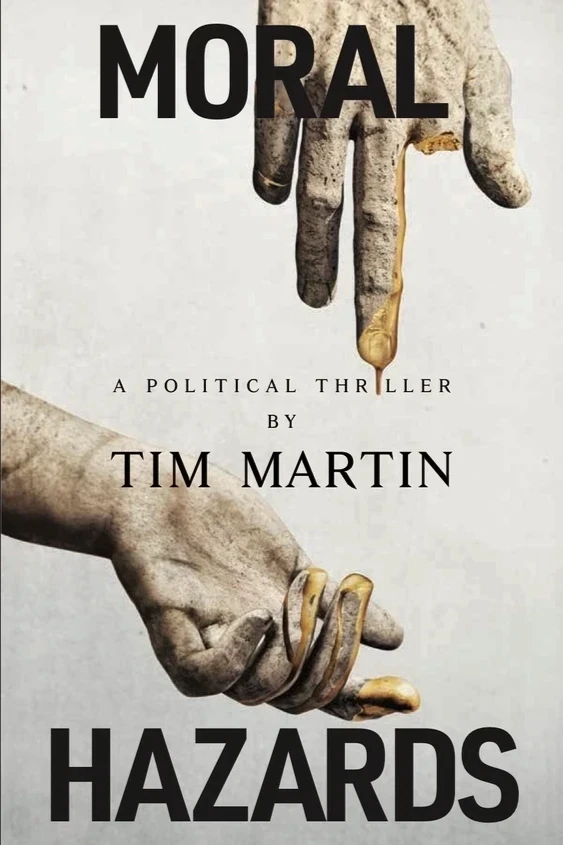Moral Hazards - Tim Martin
Anik Belanger is a rookie human rights lawyer with a mission to make rape as a weapon of war recognized as a crime against humanity. Humiliated by the loss of a high profile case against a Nazi war criminal who had been hiding out in Canada for decades, she looks for redemption in the world’s largest refugee camp, Dadaab. Against the backdrop of a devastating African civil war, women refugees provide evidence to Anik that atrocities are happening where a UN peacekeeping operation has been deployed. Together with Omar, a renegade politician, Anik embarks on a quest for justice that leads her into deadly conflict with an ambitious UN general and a vicious warlord.
Moral Hazards is a political thriller with a social conscience that reveals the human face and high stakes below the surface of military intervention. Author and veteran diplomat Tim Martin brings the authentic voice of experience from international conflict zones to this unflinching and heartfelt exploration of a peacekeeping operation gone bad.
about the author
Former ambassador Tim Martin has been at the forefront of Canadian diplomacy and international peace and security. His high-level diplomatic service includes leading Canada’s civilian work in southern Afghanistan, the Kimberley Process to ban conflict diamonds and Middle East Peace negotiations. His career has covered Colombia, Argentina, Palestine, Ethiopia, Sudan, Eritrea, Kenya, Rwanda, Burundi, Uganda, and Somalia, where Moral Hazards takes place. Tim has been awarded three medals for his service to Canada and the Award of Excellence in the Public Service for his leadership on Canada’s humanitarian assistance to Palestinian children affected by conflict.
Moral Hazards is his first novel. Another is in the works about conflict minerals in the Democratic Republic of Congo.
About the Author:
The Hidden Agenda: Two slow-motion outrages drove me to write Moral Hazards.
First, armies strike dark bargains with local power brokers (or warlords) when they bring military solutions to failed states. It’s logical. Imagine you’re a brigadier general taking 600 young men and women and a UN resolution to a remote, obscure, and dangerous country. You don’t know much about its history or culture. You don’t speak the language. You won’t be there long before your next mission. Maybe a year. So, you’re in a big hurry to complete your assignment and get credit. You need someone to work with. Someone ruthless enough to survive and powerful enough to make things happen. If you were that general, you might enter a marriage of convenience with your local warlord.
Second, rape is still used as a weapon of war. We may think of it as a relic of the past, and yet it persists into the twenty-first century in Congo, Colombia, and Myanmar, to name a few places. Even if the problem is not getting better, the international community is getting better at recognizing and talking about it. Here is what the UN Secretary General said about Somalia in his 2018 report about Women Peace and Security. “The following patterns have emerged regarding conflict-related sexual violence: it disproportionately affects displaced women and girls from marginalized groups; most perpetrators are described as men in military uniform; most cases involve rape or gang rape . . .”
My hidden agenda is this: the next time we see our military deployed to a distant crisis, let’s ask them about those with whom they will partner and how they will protect civilians, especially women and children.
Paperback, 345 pages

